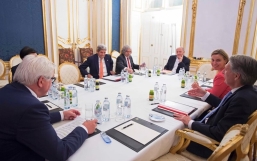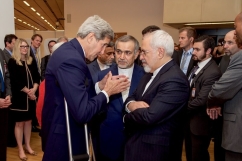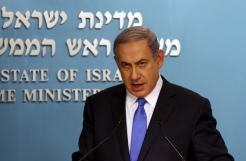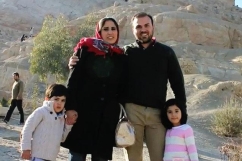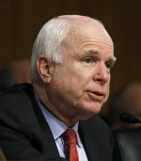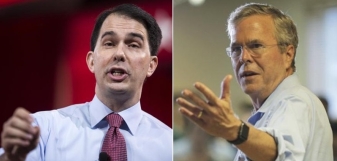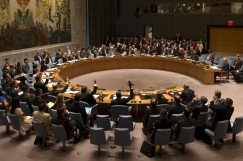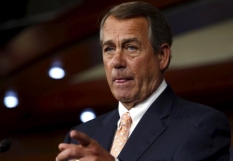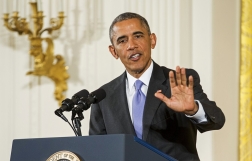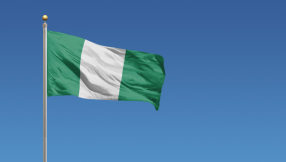A few weeks after the United States and other world powers reached a historic nuclear deal with Iran, the tension between the Iranian and American governments seems far from simmering down.
On Saturday, Iran's Supreme Leader, Ayatollah Seyed Ali Khamenei, posted a controversial and seemingly provocative graphic on his Twitter account (@khamenei_ir) apparently directed against the US and President Barack Obama.
The graphic depicts the silhouette of a man, who appears to be Obama, holding a handgun against his head. The American flag can also be seen at the left side of the graphic.
The following words, apparently a quote from Khameini, are written on the graphic: "We welcome no war, nor do we initiate any war, but if any war happens, the one who will emerge loser will be the aggressive and criminal US."
The graphic has been retweeted 1,131 times and favourited 454 times as of posting time.
Although the account has yet to be verified, it is widely believed to be the official Twitter account of Iran's Supreme Leader. The account, which also has a Spanish version, currently has 141,400 followers.
The account mostly posts anti-American sentiment. For instance, just this week, the account posted a tweet against the nuclear agreement between Iran and other influential nations.
"Israel's security will not be ensured whether there will be an Iran Deal or not," the tweet read.
In a related development, the British government announced that it no longer advises "against all but essential travel to the rest of Iran."
British Foreign Secretary Philip Hammond, however, said some areas in Iran still need to be avoided.
"Our policy is to recommend against travel to an area when we judge that the risk is unacceptably high. We consider that continues to be the case for specific areas of Iran, notably along Iran's borders with Iraq, Afghanistan and Pakistan," Hammond said in a statement.










